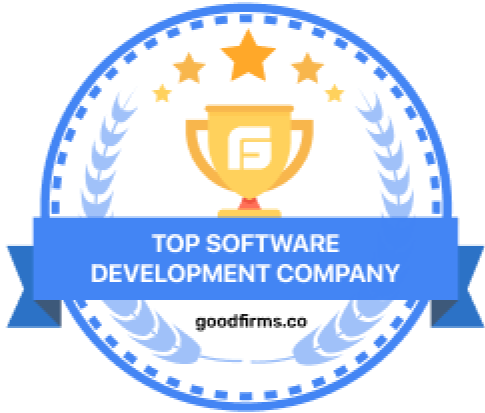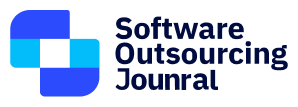Today, the business landscape is highly competitive and fast-paced, and therefore, project management is no longer about just giving out tasks and meeting deadlines. It is now about continuous adaptation, collaboration, and efficiency. Agile project management has emerged as the preferred approach for business managers, product owners, and teams striving for real-time project visibility, quick decision-making, and iterative improvements. Agile project tracking tools have transformed the way businesses manage projects by allowing easy tracking of tasks, sprint planning, resource allocation, and performance analysis. Agile project tracking tools help business managers in the following ways:
- Track progress in real-time across multiple teams and projects.
- Improve collaboration between team members, stakeholders, and clients.
- Improve accountability and efficiency with clear visibility into assigned tasks and deadlines.
- Optimize workflows through automation and integrations with existing tools.
- Identify bottlenecks and roadblocks early, enabling proactive solutions.
Whether you’re managing software development projects, marketing campaigns, business operations, or IT implementations, using the right agile project tracking tool ensures smooth execution and maximum productivity.
This guide covers 15 of the best agile project tracking tools for business managers, highlighting their features, use cases, advantages, and real-world applications.
15 Real-time Agile Project Tracking Tools for Business Managers
1. Jira: The Gold Standard for Agile Software Development
Best for:
Software development teams, enterprises, and large-scale agile project tracking.
Jira is one of the most powerful, feature-rich, and widely used agile project management tools specifically for Scrum and Kanban teams is Jira by Atlassian. It offers custom workflows, sprint planning, backlog prioritization, advanced reporting, and seamless integration with development tools such as GitHub, Bitbucket, and Jenkins.
Key Features:
- Customizable Kanban and Scrum boards
- Roadmaps for long-term planning
- Bug tracking and issue management
- Advanced reporting with burndown charts, velocity tracking, and cycle time analysis.
- Integrate with CI/CD tools, DevOps platforms, and third-party applications.
Use Case:
A large software development company dealing with a gigantic e-commerce website uses Jira to monitor the release of new features, fixing bugs, and aligning sprint cycles with remote development teams worldwide. Real-time updates and automatic sprint workflows simplify product delivery across multiple time zones and increase teamwork.
2. Trello: The Simple Visual Task Management
Best for: Small teams, start-ups, and visual task tracking.
Trello is a user-friendly, highly visual Kanban-based project management tool. It allows teams to organize tasks into boards, lists, and cards, making it easy to prioritize work and track progress at a glance.
Key Features:
- Drag-and-drop task management for seamless updates.
- Custom labels, checklists, and due dates for clear task assignments.
- Integration with Slack, Google Drive, and Dropbox.
- Power-Ups for enhanced automation and productivity.
Use Case:
A marketing agency designing a multi-channel campaign uses Trello to coordinate content creation, track ad performance, and synchronize designers, writers, and strategists. It uses Trello’s Kanban boards and automation to streamline approval processes and maximize workflow efficiency.
3. Asana: All-in-One Agile Workflow Manager
Best for: Cross-functional teams, enterprises, and large-scale operations.
Asana provides agile-friendly features like milestones and goals and timeline tracking and makes it one of the best options for the agile tracking of projects in any industry.
Key Features:
- Visual project timelines and workload distribution.
- Customizable templates for agile workflows.
- Integrated automation of repetitive task management.
- Advanced reporting tools to track OKRs, KPIs, and performance of a team.
Use Case:
A retail company planning a new product launch uses Asana to manage the production schedule, marketing efforts, and supply chain logistics in an integrated manner.
4. Monday.com: The Ultimate Customizable Agile Platform
Best for:
Dynamic teams who want flexibility and workflow automation.
Monday.com has extensive workflow automation, which is perfect for business managers who want customizable dashboards and tracking tools.
Key Features:
- Automated workflows to reduce manual effort
- Customizable dashboards for real-time project tracking.
- Gantt charts, Kanban boards, and workload balancing.
- Integration with Slack, Zoom, and Salesforce, without a hitch.
Example:
An IT consulting firm tracks software implementation projects via Monday.com to ensure developers, clients, and business stakeholders all stay in sync with one another.
5. ClickUp: The Most Versatile Agile Management Tool
Best for:
Businesses looking for an all-in-one project tracking and collaboration tool.
From task tracking to time management and goal setting to team collaboration, ClickUp does it all for agile teams.
Key Features:
- Multiple views
- Kanban
- Gantt
- List
- Calendar
- Inbuilt goal tracking and performance metrics
- Native time tracking and workload management
- Integration with thousands of third-party applications on development, CRM, and communication tools
Use Case:
A SaaS startup utilizes ClickUp for the development of a feature, the feedback of its customers, and optimization of the sprint cycle to continually improve its product.
6. Wrike – For Enterprise-Level Agile Teams
Best for:
Organizations needing highly detailed task tracking, reporting, and collaboration on a large scale.
Wrike is an enterprise-level project management tool, with robust features designed to serve large-sized businesses, IT teams, and marketing agencies at its best.
Key Features:
- Custom workflows for agile, Kanban, and Scrum teams.
- Gantt charts and Kanban boards for visualizing projects.
- Advanced automation and AI-powered analytics.
- Team collaboration tools, such as real-time commenting and document sharing.
Use Case:
A global IT consulting firm uses Wrike to track multiple client projects, ensuring timely delivery through real-time collaboration and sprint tracking.
7. Smartsheet – Suitable for Data-Driven Agile Managers
Best for:
Business managers who need a spreadsheet-like interface with agile tracking.
Smartsheet is a hybrid agile tool which mixes old spreadsheets and agile methodologies into a solution, good for data-driven decision-making teams.
Key Features:
- Grid, Kanban, and Gantt views.
- Customized automation workflows.
- Rich project dashboards that enable real-time insights.
- Microsoft 365, Google Workspace, and Jira integrations.
Use Case:
A financial services firm employs Smartsheet to track its investment projects, resource allocation, and compliance reporting.
8. Zoho Projects- Cost-Effective Agile Track and Follow-up Tool
Best for:
Small businesses and startups seeking a budget-friendly agile project tracking.
Zoho Projects is a cost-effective agile tracking tool with task automation, collaboration features, and sprint tracking.
Key Features:
- Time tracking and invoicing for project cost estimation.
- Task dependencies and milestone tracking.
- Bug tracking module for software teams.
- Integration with Zoho Suite and third-party apps.
Use Case:
A startup is using Zoho Projects to track feature development, marketing efforts, and customer feedback for a brand-new SaaS product.
9. Basecamp – Simple and Effective Team Collaboration
Basecamp is best for teams who need a lightweight project-tracking and communication tool. Basecamp is an easy-to-use agile project tracker that focuses on team communication and task management rather than complex tracking.
Key Features:
- To-do lists with automated check-ins.
- Message boards for team discussions.
- Scheduled and calendar integration.
- Client portal for external collaboration.
Use Case:
A content marketing agency uses Basecamp to track blog production, social media planning, and campaign execution.
10. Microsoft Project – Best for Structured, Large-Scale Project Planning
Best for:
Organizations that require structured project planning with agile adaptability.
Microsoft Project is great for enterprise-level agile management, as it features powerful project planning and tracking.
Key Features:
- Gantt charts, roadmaps, and resource management.
- Detailed cost tracking and budgeting.
- Integration with Microsoft Teams, Excel, and Power BI.
- Portfolio management for large-scale projects.
Use Case:
A construction company uses Microsoft Project to track multiple site developments, project costs, and deadlines.
11. Kanbanize – Ideal for Workflow Automation
Best for:
Businesses requiring AI-powered agile project tracking.
Kanbanize is a Kanban-based agile tool with powerful automation and analytics for agile teams.
Key Features:
- Workflow automation for repetitive tasks.
- WIP (Work In Progress) limits to optimize efficiency.
- Predictive analytics for agile forecasting.
- Portfolio management for enterprise agility.
Use Case:
A manufacturing firm uses Kanbanize to streamline production workflows, minimize waste, and improve productivity.
12. Teamwork – Excellent for Client-Facing Agencies
Best for:
Agencies handling client projects, deadlines, and deliverables.
Teamwork offers excellent tools for collaboration with clients as well as agile tracking.
Key Features:
- Task lists, time tracking, and budgeting.
- File sharing and client and team collaboration.
- Multiple views of projects in Kanban, List, and Gantt chart.
- Features in billing and invoicing.
Use Case:
A digital marketing agency uses Teamwork to track SEO campaigns, content schedules, and ad performance.
13. Shortcut (Clubhouse) – Built for Agile Software Development
Best for:
Engineering teams that follow Agile or Scrum methodologies.
Shortcut, formerly known as Clubhouse, is an engineering-focused agile tool that integrates well with GitHub, Slack, and Jira.
Key Features:
- Automated sprint planning and backlog prioritization.
- Cross-functional team collaboration.
- Built-in reporting and analytics.
Use Case:
A tech startup is using Shortcut to have a streamlined app development cycles, track bugs, and ensure continuous delivery.
14. Notion – Project Tracking with Documentation
Best for:
Teams that need project management plus knowledge management.
Notion is a hybrid tool for management of the project and documentation, providing agile tracking, wikis, and team collaboration.
Key Features:
- Kanban, calendar, and list views
- Customizable templates for agile workflows
- Embedded databases for deep tracking
Use Case:
A consulting firm uses Notion to track client projects while maintaining a centralized knowledge base.
15. ProofHub – Perfect for Growing Teams That Require Simple Agile Tracking
Best for:
Small businesses looking for easy-to-use project tracking.
ProofHub is a minimalist agile tool focusing on task tracking, discussions, and file sharing.
Key Features:
- Task delegation with clear priorities.
- Gantt charts and Kanban boards.
- In-app chat for instant communication.
Use Case:
A design agency utilizes ProofHub for managing client projects, tracking revisions, and adhering to deadlines.
Conclusion:
The right agile project tracking tools is what helps business manager to improve efficiency, collaboration, and project visibility. Whether managing software development, marketing campaigns, or enterprise-level projects, the right tool streamlines workflows, enhances decision-making, and optimizes resource management.
Large organizations find suitable robust platforms such as Wrike, Microsoft Project, and Smartsheet, while the software development teams can thrive using Jira, Pivotal Tracker, and Shortcut. Startups and small businesses find a good solution with the cost-effective solution like Zoho Projects, Basecamp, and Notion for smooth collaboration and agile tracking.
As digital transformation accelerates, AI-driven automation, workflow optimization, and cloud-based solutions will further enhance agile project management, enabling businesses to stay competitive, meet deadlines, and drive long-term success.
If you are a business looking to get started with Agile methodology and need assistance, we are here to help you. We ensure to offer a feasible solution that enhances your data-driven decision strategies. Get in touch with us.

Start a Project with Ajackus













